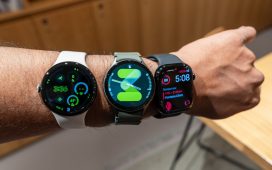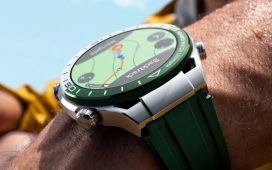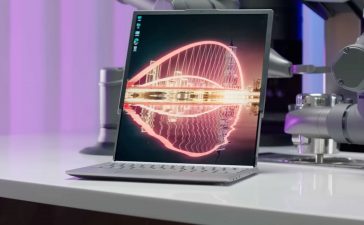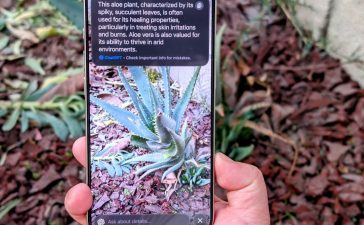
The Moto G04 4G 2024 is a $179 smartphone. As such, we need to examine what you get and what, if anything, is missing from this bargain handset.
Well, it has everything you need and the quality and performance you can expect at this price. It gets a definite buy recommendation because, frankly, you cannot expect or get more.
Purists may say:
- The Unisoc T606 processor crawls – it does – but it is fit for purpose for typical use.
- 4GB RAM is too small for Android 14. Well, you can boost this with virtual RAM up to 8GB (using storage as a swap space), and it’s not a bottleneck.
- A single 16MP camera is inadequate. Well, yes but it is better than social media class and OK in reasonable light levels.
- Mono sound sucks – well, most smartphone sound sucks, whether it’s mono or stereo. So use earphones for stereo and Dolby Atmos sound.
- A 720p screen is so yesterday – and it is, but at the price, it is a damned good screen.
- There are no OS upgrades and only two years (from launch) of quarterly security patches. This is more than you can expect at this price.
My point is that every one of the above comments has been made by professional reviewers who tend to think everything should be compared to an iPhone. CyberShack says it is an excellent $179n phone with no downsides for that price.
Its stablemate, the $229 Moto g24 (review coming), uses a different processor and camera but is essentially the same phone. Should you spend $50 more? Sure, if you have the cash to flash because, at $229, it represents good value. It is the same repetitive argument – you buy the best phone in your price bracket – it is called bang for buck – and we are focused on that.
New review format
We are experimenting with our review format. Where we used to put all the raw data in tables at the end, we will now break them up and briefly comment on the various parts. Why? Readers who want to know more will paw over the tables. Readers who wish to see if it’s a good phone can just read the comments. Of course, we still have CyberShack’s’ View and rating explanation at the end – do make sure you read that.
We use Fail (below expectations), Pass (meets expectations) and Exceed (surpasses expectations or is the class leader) against many of the items below. We occasionally give a Pass(able) rating that is not as good as it should be and a Pass ‘+’ rating to show it is good but does not quite make it to Exceed. You can click on most images for an enlargement.
We are also tightening up on grading. From now on, Pass, for example, means meeting expectations for the price bracket. We consider a Pass mark to be 70+/100 with extra points added for class-leading and excellence.
Australian Review—Motorola G04 4G 2024, 4/64GB, dual SIM, dedicated microSD slot model XT2421-5
Note that there are two models: retail has a dual SIM, dedicated microSD slot, and a one-year warranty. Telco has a single SIM, dedicated microSD slot, and a two-year warranty.
| Brand | Motorola |
| Model | Motorola g04 4G 2024 |
| Model Number | XT2421-5 |
| RAM/Storage Base | 4/64 |
| Price base | $179 |
| Warranty months | 12 months retail 24-months Telco carrier |
| Tier | Entry-level |
| Website | Product Page |
| From | Motorola Online, Harvey Norman, JB Hi-FI, Bing Lee, Retravision, Australia Post, Big W, Officeworks Telstra Satin Blue single sim $149 outright |
| Country of Origin | China |
| Company | It is owned by Lenovo (Est 1984) – a multinational technology company with its primary operational headquarters in Beijing and Morrisville, North Carolina. It is the world’s largest PC maker. It purchased Motorola Mobility from Google in 2014. Most of Lenovo’s smartphone business is now under the Motorola brand, with grand plans to become a ‘top five’ smartphone maker. |
| More | CyberShack Motorola news and reviews Cybershack smartphone news and reviews |
| Test date | 1-7 May 2024 |
| Ambient temp | 15-18° |
| Release | Feb 2024 |
| Other models not for Australia (Don’t buy) | Please read Don’t buy a grey market smartphone (updated guide) |
First Impression – Pass
Motorola makes many phones covering the entire market, from entry-level to flagship flips. Its build quality never varies, and the g04’s build quality is as good as its top-line phones.
I particularly like the way the rear camera hump flows over the matte, fingerprint-resistant PMMA back.
Screen – Pass
It is a fit for purpose720p IPS LCD 20.1:9 screen with a 60 or 90Hz fixed or stepped refresh rate. It does not list screen protection, so you may want to invest in a screen protector.
Two hundred nits brightness cannot defeat direct sunlight, and its off-angle viewing shows colour shifts and loss of definition.
| Size | 6.6″ |
| Type | IPS LCD |
| Flat, Curve, 2D, 3D | Flat with centre o-hole |
| Resolution | 1612 x 720 |
| PPI | 269 |
| Ratio | 20.1:9 |
| Screen to Body % | 84.9% |
| Colours bits | 8-bit 16.7m colours |
| Refresh Hz, adaptive. | Auto or select 60 or 90Hz |
| Response 120Hz | N/A |
| Nits typical, test | Test 220 |
| Nits max, test | Peak brightness not specified (Test 414) |
| Contrast | Not specified (1200:1) |
| sRGB | Test 94.5% |
| DCI-P3 | Not tested. |
| Rec.2020 or other | No |
| Delta E (<4 is excellent) | N/A but above 4. |
| HDR Level | SDR |
| SDR Upscale | No |
| Blue Light Control | Yes |
| PWM if known | No |
| Daylight readable | No |
| Always on Display | Peak display option |
| Edge display | No |
| Accessibility | Usual Android features |
| DRM | L1 for HD SDR |
| Gaming | Not for gaming |
| Screen protection | Unknown |
| Comment | Blueish cast – best to use Natural setting. Fit for purpose |
Processor – Passable
Every UNISOC phone I have tested has similar issues – lag under load. In typical use, it is fit for purpose. The virtual RAM feature adds slower storage RAM and does help a little. But with 64GB (39GB free), you may not want to hive off another 4GB for virtual RAM.
| Brand, Model | UNISOC T606 |
| nm | 12 |
| Cores | [email protected] + [email protected] |
| Modem | 4G Cat 7 |
| AI TOPS | Estimate <4 |
| Geekbench 6 Single-core | 363 |
| Geekbench 6 multi-core | 1212 |
| Like | Used in Nokia G11/21/22/ Samsung Galaxy A03 Motorola e13/20/32 MT Helio G88, G85 and G80. Closest SD632 and 662. Benchmarks |
| GPU | ARM Mali G57 1-core 650Mhz |
| GPU Test | |
| Open CL | 447 |
| Like | N/A |
| Vulcan | 442 (way too low for games) |
| RAM, type | 4GB LPPDDR4X |
| Storage, free, type | 64GB UFS 2.2 (39GB free) |
| micro-SD | Up to 1TB – dedicated slot |
| CPDT internal seq. Read MBps sustained | 309 (Jazz maximum 566) |
| CPDT internal seq. write MBps sustained | 244 (Jazz maximum 290) |
| CPDT microSD read, write MBps | 78/42 |
| CPDT external (mountable?) MBps | 1TB test unit identified in My Files but not seen in CPDT – not mountable |
| Comment | It is slow and laggy when under any load, often hanging for a second or more. However, it is the quintessential lowest-cost phone. |
| Throttle test | |
| Max GIPS | 133641 |
| Average GIPS | 131235 |
| Minimum GIPS | 118138 |
| % Throttle | Nil |
| CPU Temp | 50 |
| Comment | Good thermal management |

Comms – Passable
It has Wi-Fi 5 AC, which usually means 2.4GHz and 5GHz bands. But no matter how we tried, it only connected to the 2.4GHz band. Its sibling, g24, connects to both. I am sure this is firmware-fixable, but it loses points. That means a maximum of 200Mbps connection speeds instead of 433Mbps, making it feel positively slow in downloading and streaming video.
| Wi-Fi Type, model | Wi-Fi 5 AC 2.4GHz – will only connect to 2.4Ghz 40MHz bandwidth |
| Test 2m -dBm, Rx/Tx Mbps | -20/180/200 |
| Test 5m | -26/200/167 |
| Test 10m | -45/155/178 |
| BT Type | 5 |
| GPS single, dual | Single 6m accuracy |
| USB type | USB-C 2.0 480Mbps |
| ALT DP, DeX, Ready For | No |
| NFC | Yes Requires fingerprint authorisation and third-party mobile app (Google Pay) |
| Ultra-wideband | No |
| Sensors | |
| Accelerometer | Yes -combo with Gyro is very sensitive |
| Gyro | Yes |
| e-Compass | |
| Barometer | |
| Gravity | |
| Pedometer | |
| Ambient light | Yes |
| Hall sensor | |
| Proximity | Yes |
| Other | No |
| Comment | Wi-Fi AC speeds are lower than expected—they should have been 433Mbps if it could connect at 5Ghz. Again, this is typical of the UNISOC. |
It only connected at 2.4GHz and the speeds are quite variable. see the wide variations in Rx, Tx, and Ping.







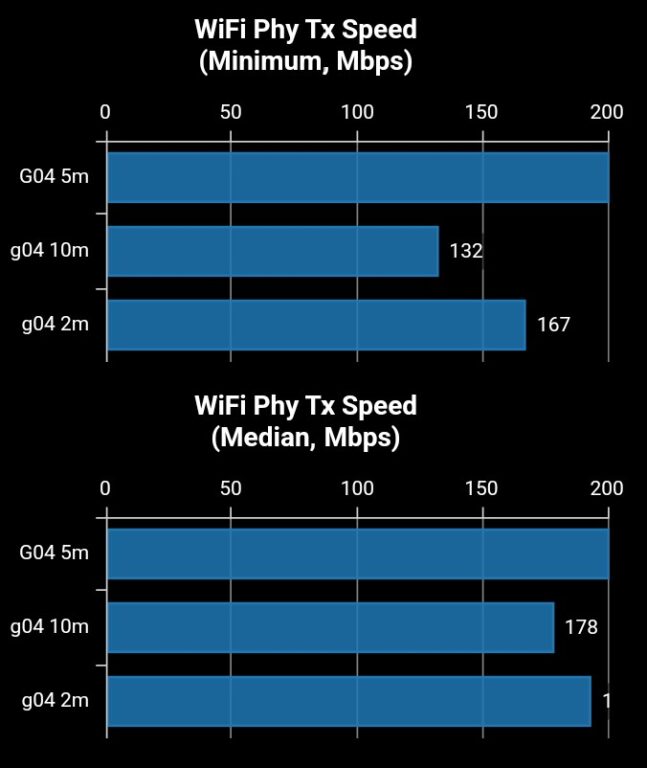


LTE and 5G – Pass
It gains points for dedicated dual SIMM and microSD slots and if it is fit for purpose for all Australian 4G bands (not an international use phone).
The UNISOC modem finds only one tower and connects at excellent signal strength. As it does not find the adjacent four towers, it is suitable for city and suburban use only.
| SIM | Dual sim and dedicated microSD |
| Active | Only one active at a time |
| Ring tone single, dual | Dual |
| VoLTE | Carrier dependent |
| Wi-Fi calling | Carrier dependent |
| 4G Bands | 1/3/5/7/8/28/40/41 |
| Comment | All Australian 4G bands |
| 5G sub-6Ghz | N/A |
| Comment | N/A |
| mmWave | N/A |
| Test Boost Mobile, Telstra | |
| DL/UL, ms | 14.7/7.1/27ms – below average |
| Tower 1 -dBm, fW or pW | -78 to -84/4-16pW – good single tower |
| Tower 2 | No |
| Tower 3 | No |
| Tower 4 | No |
| Comment | It appears typical of the Unisoc modem. This is a city/suburbs phone only if you have good tower coverage. |
Battery – Passable
There is nothing wrong with the battery life—it loses points for not being supplied with a charger or cable. The good news is that it only uses 5V/2A/10W, so any older charger and USB-C cable will work. It will recharge from a PC USB port as well—it may take longer. The video loop was over 14 hours, the charge time was around two hours, and you should get two days of physical use between charges.
| mAh | 5000 |
| Charger, type, supplied | Not supplied – 5V/3A/15W capable Out tests did not see this above 5V/2A/10W. |
| PD, QC level | No PD, but you can use PD chargers. |
| Qi, wattage | N/A |
| Reverse Qi or cable. | N/A |
| Test (60Hz or adaptive screen) | Adaptive |
| Charge % 30mins | 6 hours |
| Charge 0-100% | 2 hours 10 minutes |
| Charge Qi, W Using Belkin Boost Charge 15W fast wireless charge |
N/A |
| Charge 5V, 2A | Over 7 hours |
| Video loop 50%, aeroplane | 14 hours 15 minutes |
| PC Mark 3 battery | 15 hours 37 minutes |
| GFX Bench Manhattan battery | |
| GFX Bench T-Rex | 685.4 minutes (11.42 hours) 1863 frames |
| Drain 100-0% full load screen on | 5 hours 37 minutes |
| mA full load | 1150-1250 |
| mA Watt idle Screen on | 300-350 |
| Estimate loss at max refresh | N/A |
| Estimate typical use | Given it is a low-powered processor, a typical user should get two days. |
| Comment | Reasonable battery life, slowish charge times and no charger. |
Sound – Passable
It is a mono speaker focusing on clear voice. It can decode Dolby Atmos and output via Bluetooth to earphones. Hands-free was a little soft, and it had no background noise cancelling.
| Speakers | Mono earpiece in phone mode and mono bottom speaker in hands-free or music. |
| Tuning | No |
| AMP | Unisoc |
| Dolby Atmos decode | Yes, for 2.0 earphones. |
| Hi-Res | No |
| 3.5mm | Yes |
| BT Codecs | SBC, AAC, free aptX and aptX HD and LDAC 16-bit/44100/48000 |
| Multipoint | Unknown – likely not |
| Dolby Atmos (DA) | Smart, Music, Film, Game, Podcast, and Custom EQ |
| EQ | See DA |
| Mics | Single bottom mic |
| Test dB – all on EQ flat DA off | |
| Volume max | 80 |
| Media (music) | 75 |
| Ring | 78 |
| Alarm | 80 |
| Notifications | 73 |
| Earpiece | 65 |
| Hands-free | Slightly low volume, no noise-cancelling, so keep it close to your face. |
| BT headphones | Average volume and channel separation |
How does it sound? – Pass
As a mono speaker, we don’t usually test the native frequency response, but we did anyway. It has no bass, almost no low-and-mid-mid, decent high-mid and low-mid treble for clear voice and limited high treble.
As long as you use earphones for music, this is fine.

| Deep Bass 20-40Hz | Nil |
| Middle Bass 40-100Hz | Nil |
| High Bass 100-200Hz | Starts at 100Hz and slowly builds to 1kHz |
| Low Mid 200-400Hz | Slowly building |
| Mid 400-1000Hz | Slowly building |
| High Mid-1-2kHz | Flat |
| Low Treble 2-4kHz | Flat |
| Mid Treble 4-6kHz | Flat |
| High Treble 6-10kHz | Decline to 8kHz to avoid harshness and then climbs to 9kHz. |
| Dog Whistle 10-20kHz | Flat to 14kHz, then off a cliff |
| Sound Signature type | Mid for clear voice. The music quality is poor, with no bass, no treble, and lacking vitality. |
| Soundstage | Mono – none |
| Comment | It is suitable for voice but not for music. Similar to the Moto g24 |
Build – Pass+
It is well-built and should last a few years. We call out the lack of a charger and cable but compensate with a silicon bumper cover.
| Size (H X W x D) | 163.49 x 74.53 x 7.99 mm |
| Weight grams | 178.8g |
| Front glass | Not specified |
| Rear material | PMMA |
| Frame | PMMA |
| IP rating | IP52 Water-repellent coating |
| Colours | Concord black Satin Blue Sunrise Orange |
| Pen, Stylus support | No |
| In the box | |
| Charger | No |
| USB cable | No |
| Buds | No |
| Bumper cover | Yes |
| Comment | Loses points due to no included charger |
OS – Pass
Previous models at this price used 32-bit Android Go and a limited set of Go apps. This is a full-fat 64-bit Android.
It has no OS upgrade but a reasonable two years of security patches from the launch date. Moto adds some excellent usability features, and its UI is a light touch over Android, so it is easy to use.
| Android | Android 14 |
| Security patch date | 1 March 2024 |
| UI | Display: Ambient display Gestures: Fast torch, Three-finger screenshot, Sidebar, Double press power button, Press and hold power button |
| OS upgrade policy | No |
| Security patch policy | Two years of security patches |
| Bloatware | Booking.com, Facebook, LinkedIn, TikTok |
| Other | Moto apps – some duplicate Google apps. |
| Comment | There is a lot of added functionality in MY UX, which leaves the underlying Android alone. |
| Security | |
| Fingerprint sensor location, type | On power button – 8/10 test |
| Face ID | Yes |
Moto g04 4G 2024 rear camera – Passable
A single 16MP sensor with a high crop ratio means that it tries to use electronic image stabilisation to reduce shakes and keep the horizon level. The result is a cropped image that can be smaller than the preview. It has very limited AI post-processing capabilities.
It is acceptable for day and office light. It struggles in low light and video.
| Rear Primary | Wide |
| MP | 16MP with 7.4X crop |
| Sensor | Hynix HI1634 |
| Focus | PDAF |
| f-stop | 2.2 |
| um | 1 |
| FOV° (stated, actual) | 68.5 (H) x 80.9 (D) |
| Stabilisation | No |
| Zoom | 4X digital |
| Video max | 1080p@30fps |
| Flash | Yes |
| Auto-HDR | Yes, but not really effective |
| Shooting modes: Photo Portrait Night Vision Artificial intelligence: |
|
| QR code reader | Yes |
| Night mode | Not enough AI to do this |






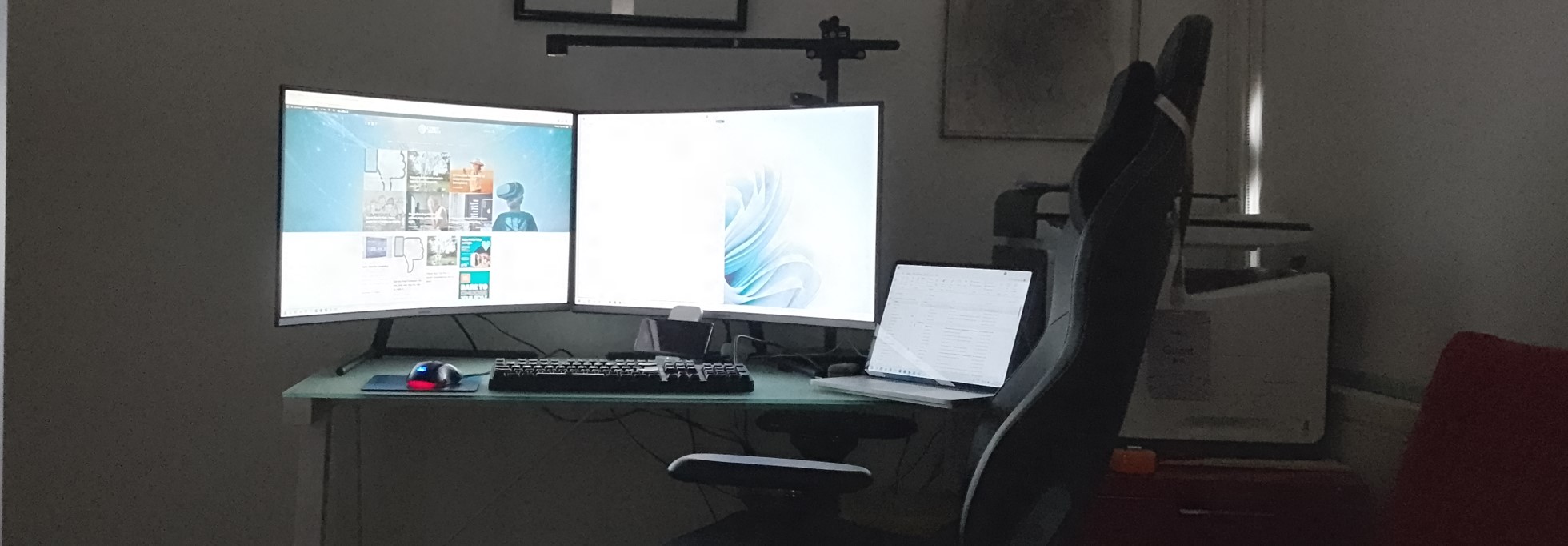

Moto g04 4G 2024 front camera – Passable
A 5MP fixed-focus selfie with a relatively tight field of view means it is for single selfies only.
| MP | 5MP |
| Sensor | Hynix HI556 or Galaxy Core GC05 |
| Focus | FF |
| f-stop | 2.2 |
| um | 1.12 |
| FOV (stated, actual) | 65.9 (H) x 78 (D) |
| Stabilisation | No |
| Flash | Screen fill |
| Zoom | No |
| Video max | 1080p@30fps |
| Features | Shooting modes: Photo Portrait Artificial intelligence: Face Retouch Mirror Shooting modes: |
| Comment | Reasonable skin tone. Poor low-light images and video. |
CyberShack’s view – The Moto g04 4G 2024 is as good as it gets for the price
I said most of what needed to be said in the preamble. If you have $176, then there are no downsides. I can see this being a great kid’s first phone; give it to Granny, or it is excellent for those who can’t afford more.
Rush to Telstra and get the single sim carrier version for $149 outright purchase with a 2-year warranty.
Ratings
We remind readers that 70 is the new pass mark – you should only be concerned if a review is below that.
| Ratings | New for 2024 – 70 is a pass mark |
| Features | 70 |
| It has basic features commensurate with the price. Loses points due to no charger inbox | |
| Value | 75 |
| It has the bare necessities at a reasonable price. | |
| Performance | 70 |
| It is an entry-level value SoC, and you get fit-for-purpose laggy performance. It is not for gamers. | |
| Ease of Use | 70 |
| My UX adds some value to stock Android. Two years of security patches is all you can expect. | |
| Design | 70 |
| All PMMA plastic is fine – it looks like a more expensive smartphone. | |
| Rating out of 10 | 70 |
| Final comment | This entry-level device replaces the e13, which uses the same SoC, screen, camera and more. It has enough power to be usable, runs 64-bit Android 14 (no OS updates) and has NFC. |
| Pro | |
| 1 | My UX is a light touch over Android. Good security policy |
| 2 | As low as you can go and still get a decent smartphone |
| 3 | Reasonable battery life (but no charger) |
| 4 | An adequate point-and-shoot camera, but the video is for daylight only. |
| 5 | |
| Con | |
| 1 | Mono speaker (all we expect) |
| 2 | Processor crawls |
| 3 | No charger inbox |
| 4 | Capital city/suburbs phone use only |
| 5 | Dull, inaccurate colour, poor viewing angle display |
Motorola Privacy and Terms and Conditions – Pass
We remind you that these are in addition to Google Android policies – read Can you trust Google? Yes, but it depends on your definition. If you are privacy conscious, we advise using Google Apps where possible and avoiding Motorola sign-on and experiences.
You can still use the phone without signing up to Motorola and adjust privacy settings, so we will classify the privacy policy and terms and conditions as benign.



But know that its Privacy Policy (9474 words) and Terms and Conditions (2236 words) allow it to collect every possible piece of information that the phone can provide. Motorola states that it does not sell personal information but does provide it to business partners. It does not state where its cloud data is stored but states that it complies with the laws of the countries it sells in.
Moto g04 4G 2024
Moto g04 4G 2024, Moto g04 4g 2024
Moto g04 4G 2024
$179 retail and $149 for Telco version
Pros
- My UX is a light touch over Android. Good security policy
- As low as you can go and still get a decent smartphone
- Reasonable battery life (but no charger)
- An adequate point-and-shoot camera, but the video is for daylight only.
Cons
- Mono speaker (all we expect)
- Processor crawls
- No charger inbox
- Capital city/suburbs phone use only
- Dull, inaccurate colour, poor viewing angle display




